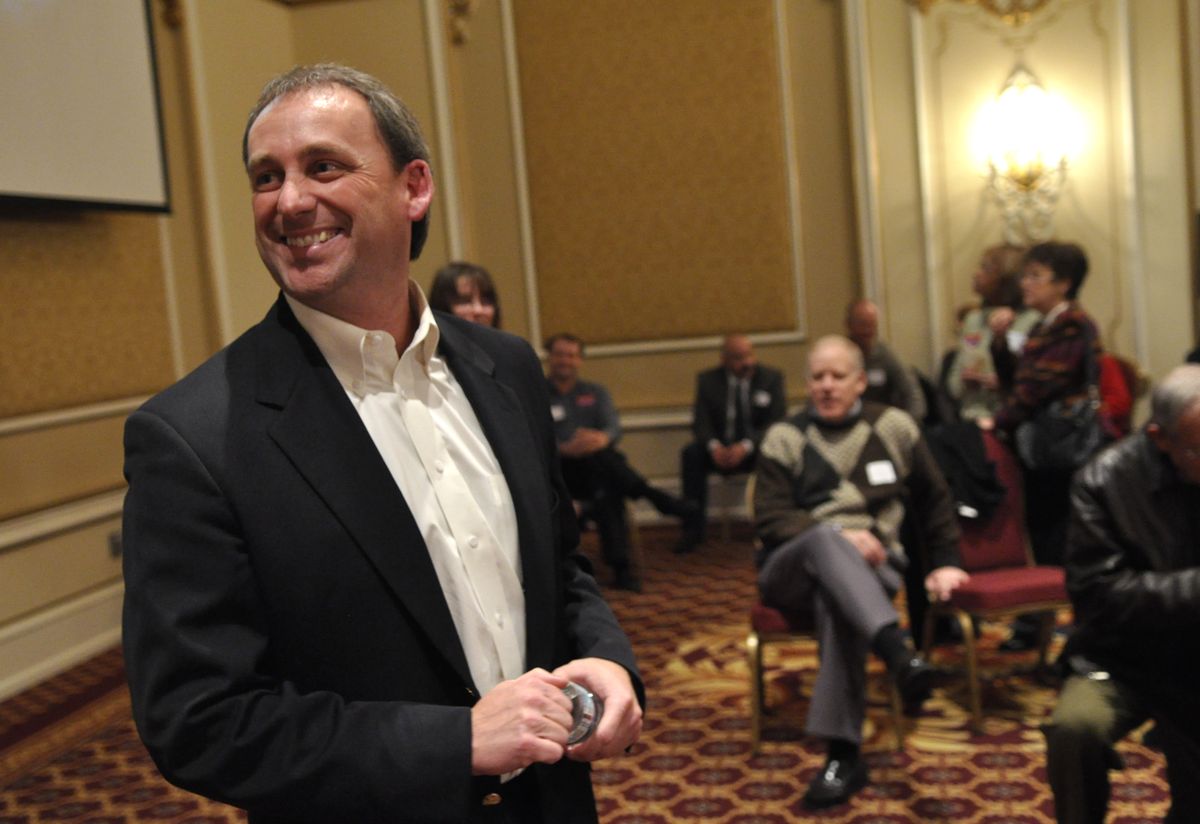Incumbents out front
Area Republicans buck national trend

Incumbent county commissioners in both Coeur d’Alene and Spokane appeared to hold onto their positions Tuesday. In Kootenai County, Republican incumbents Todd Tondee and Rick Currie appeared to be cruising to easy victories in the two three-way races for county commissioner.
Early results had Tondee with 17,511 votes compared to 11,704 for Democrat Bruce Noble and 3,077 for Independent Greg Wells, according to the Kootenai County elections office.
In the other race, Currie was leading with 16,469 votes compared to 10,883 for Democrat Stephen J. Caires and 5,085 for Independent Bob McDonald, himself a former county commissioner. Ballot counting was scheduled to continue through the night.
In both races, the Democratic challengers advocated hiring a county administrator to manage day-to-day affairs, leaving commissioners open for policy setting and tending to other tasks such as updating the comprehensive plan and zoning ordinances.
Tondee supports hiring an administrator, but Currie dismissed the idea, saying candidates who push for an administrator don’t want to do the work themselves.
Currie said he felt proud to garner more than 50 percent of the vote in a three-way race. He said he thinks voters are sending him a message that “they know I’m a hard worker, they know I care about this county and I represent them, all of them, well.” He said he wanted to send the voters “a big thank you for putting their faith in me for another two years.”
With 36 percent of ballots counted, Tondee felt comfortable that his lead would hold.
“I think I’m in pretty good shape,” Tondee said. After the election, he said, “We’re going to continue with the comp plan and move forward with the zoning ordinances.”
In Spokane, Republican incumbents Todd Mielke and Mark Richard appear to have scratched out close victories over Democratic upstarts Dr. Kim Thorburn and Brian Sayrs.
“My sense is that statistically, if you look at past elections, we will come out with stronger numbers yet,” Richard said. “That’s a good indication that we are moving in the right direction. But there is no doubt; we have challenges ahead of us.”
Mielke, a 44-year-old former state lawmaker and lobbyist, was leading with an early vote count of 60,975 to Thorburn’s 51,556.
“The numbers are higher than we anticipated,” Mielke said. “This has been one of the most competitive races I have been involved with in about 20 years of being in and around politics. I’m extremely pleased.”
Mielke raised the most money for the campaign after a close primary where Thorburn had criticized the incumbent’s decision to purchase the Spokane Raceway Park.Thorburn said she was disappointed in the outcome. “I think I would have been a really good county commissioner. It was just an honor to share my issues and values with the community.”
In the other Spokane race, Richard, 44, held a slim lead over Sayrs – 56,793 votes compared with 53,762 – who has served the last seven years on the Liberty Lake City Council.
“I’m cautiously optimistic that the lead will hold,” Richard said.
Sayrs called for impact fees on local housing developments. The Army veteran and computer software engineer said he hoped his close showing at the polls will persuade the county commission to listen to communities first when considering new development plans. “In a democracy, I believe it’s important to count every vote,” Sayrs said. “I was just speaking to the group and saying that whether one individual is elected, the fight for open, fiscally responsible and community-oriented government will always continue.”
Once the election results become official, county commissioners face several costly challenges.
Sometime next year, they are expected to ask voters to increase both sales and property taxes to help fund an expected $245 million jail expansion that will cost another $8 million a year to operate.
Mielke also said the county must forge ahead on a regional waste water plan that could cost up to $800 million.
Both those projects come with deadlines at a time when the national and local economies are heavily stressed.